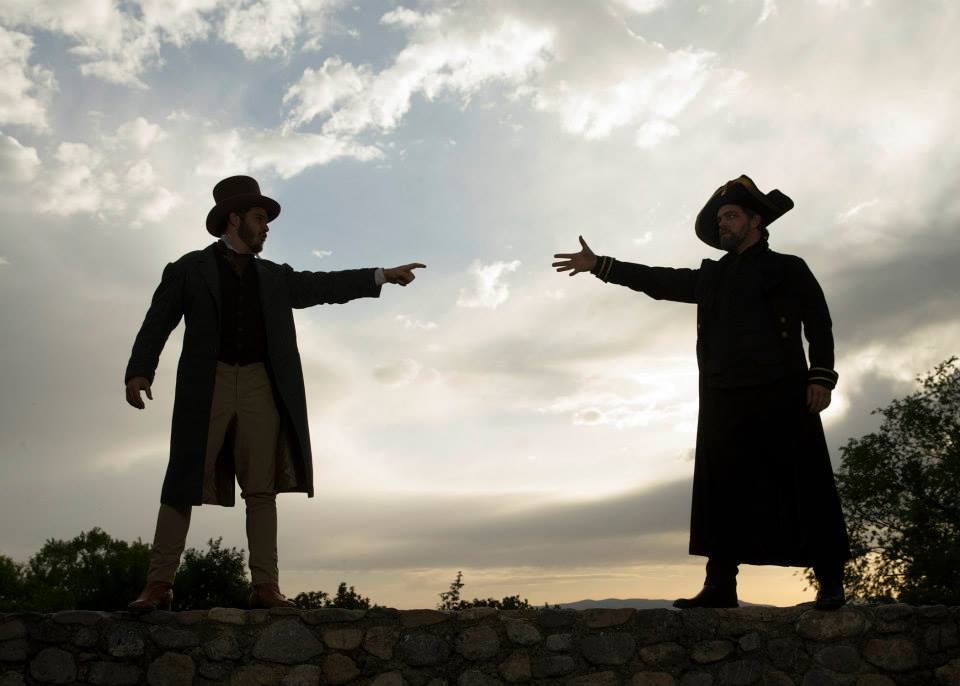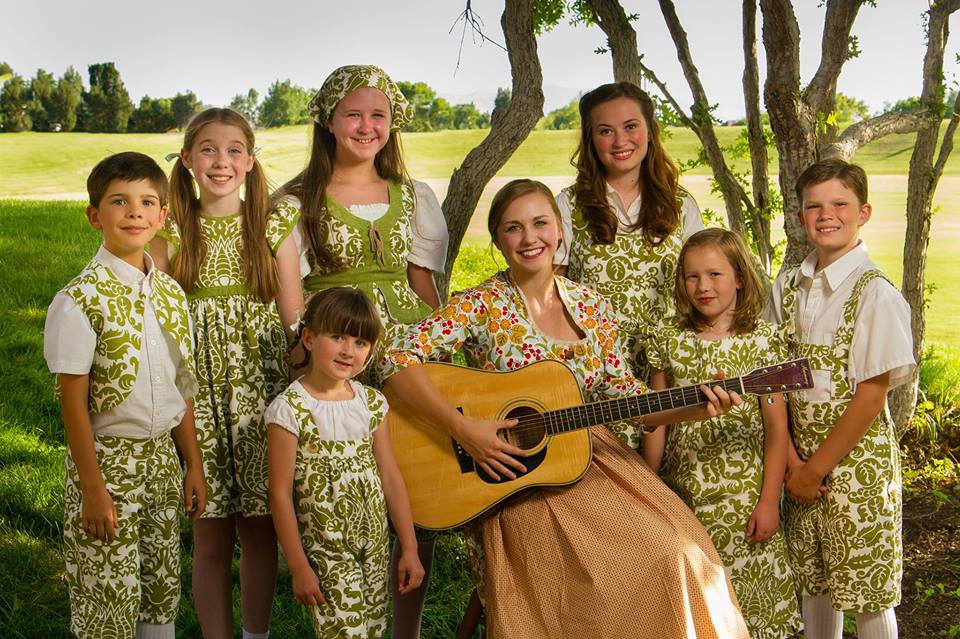PROVO — I grew up watching the Audrey Hepburn and Rex Harrison film adaptation of My Fair Lady, so I was thrilled at the chance to see the George Bernard Shaw play that inspired the musical. The plot follows Eliza Doolittle (Alice Johnson), an unkempt London girl who meets a professor of phonetics by chance while selling flowers in the street. Professor Henry Higgins (Stephen Geis) boasts to his friend Colonel Pickering (Robert Holcombe) that by simply teaching proper elocution to the barely-comprehensible Cockney flower girl, he could pass her off as a duchess.
Pygmalion was named for the mythical Greek sculptor who fell in love with a statue he himself had carved, and the parallels between the myth and the play are apparent. Higgins and Pickering take it upon themselves to dress and refine Eliza, with a six month deadline for turning her into a lady that can pass as a duchess at an ambassador’s garden party. The major conflict in the play is not simply whether or not Professor Higgins can make good on his boast, but, more importantly, what will happen to Eliza once he is through with her. Would it be moral for Professor Higgins to send Eliza back to her old neighborhood after thoroughly acclimating her to London’s middle class customs? While everyone but Higgins and Pickering seem to be fixated on the question, the two gamblers are altogether oblivious to the ramifications of their experiment.
As Eliza, Johnson was an easy favorite and a pleasure whenever she was on stage. She brought her own humor and energy to the role so that I didn’t feel like I was watching a stand-in for Audrey Hepburn. She was delightful in every stage of her progression from shop girl to lady. I was especially impressed with her changes in manner and accent—from Cockney to Queen’s English—from the beginning of the play to the end.
Geis and Holcombe portrayed an easy familiarity that highlighted both the kindred linguistic interests of Professor Higgins and Colonel Pickering as well as their contrasting temperaments. Geis’s Professor Higgins was a believably irritable old bachelor who was both absent-minded in his own habits and demanding in his expectations of others. I especially enjoyed Holcombe as the mild-mannered Colonel Pickering who was somehow just as consistently kind as he was oblivious to his friend’s unkindness.
My favorite scene in the play was when the duo took Eliza on a society visit to Professor Higgins’ mother’s home to test the progress of their re-education. Mrs. Higgins’ society guests, the Eynsford-Hill family, are initially fooled by Eliza’s civility and accent. But once Eliza begins to gossip about the scandals and rumors in her lower-class London neighborhood, everyone present is quickly up in arms. Mrs. Eynsford-Hill (Mary Garlitz) is scandalized by Eliza’s vulgar language. Clara (Leisl Cope) is taken by Eliza’s bawdy “new small talk” and enthusiastically plans to show off her newly-learned curse words as soon as occasion permits. And Freddy (Jordan Kramer) laughs himself into a deep infatuation with Eliza. Each actor’s reaction was perfect, and I laughed through the whole scene.
Jenny Eckton, in particular, was fantastic as Mrs. Higgins. She was the one character who seemed to consider Eliza’s feelings. Her calm, reasonable personality was a welcome departure from her son’s blatant sexism and Colonel Pickering’ blind benevolence. And finally, I was thrilled every time Curtis Adams took the stage as Eliza’s father. Adams played the cheerful chimney sweep/swindler in such a manner that his straight-forward attitude and humorous outlook always earned a laugh.
I was especially impressed by the quality of the actors’ accents. I find accents are often the Achilles’ Heel of local theatre, and I groan inwardly whenever someone fails at implementing one. Getting an entire cast of local actors to speak in accents that approach authentic without straying into the distracting or comical is a feat that I see done well very rarely. For Pygmalion, a play whose subject matter depends on the characters’ distinct and identifiable English dialects, it is critical the actors get it right. And they did. Each accent fit the character’s class and origin. In a show where each character’s elocution is the subject of the plot, I would consider this accomplishment a huge success.
Costumes (Anne Betts), makeup and hair (Jillian Petrie Unice) were simple and unobtrusive, but they clearly communicated the classes of each character and gave a nice visual for Eliza’s transition from flower girl frump to high class babe. The set (Jason Sullivan) was similarly minimal, with a few simple wooden white window door frames to the back of the stage, and an occasional sofa, end table, desk or other sundry furnishing that could be rearranged to represent changes in scene. Together with only a few props as needed (Estee Parker), the set, lighting (Samantha Layco), and sound (Rob and Georgia Buchert) were simple but served their purpose, neither distracting from the story itself or overburdening the actors.
My one criticism of the show was that it dragged. Even with some fantastic performances and comic execution, I found myself yawning. My guest and I discussed this problem at length and couldn’t agree on any one actor to blame. So we ultimately blamed the show’s pacing. Under the direction of Jason Sullivan and assistant director Georgia Buchert, even interesting conversations felt slow because there were unnatural delays between lines. Actors occasionally stumbled over their lines noticeably. We attended on opening night, but it felt more like a final run through. No one was particularly off more than the rest, but the cast as a whole lacked the organic chemistry that makes exchanges feel natural and easy to watch. Even though every character felt like a whole person, they weren’t cohesive as a group. Still, with such a talented cast, I believe some attention to the conversational pacing, specifically polishing the humorous exchanges, Echo Theatre’s Pygmalion has the potential to be a crowd-pleaser.






